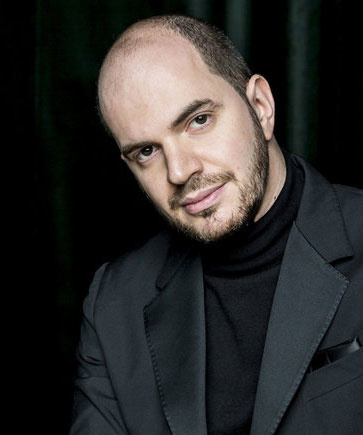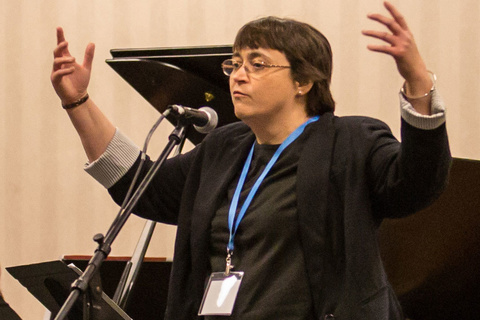
Featuring guest composer and UI alumna Amy Dunker
The Center for New Music Ensemble
Sunday, September 24, 2017 at 7:30p in the Concert Hall
Program
Keep Calm (2016)
Amy DUNKER (1964)
Mauricio Silva and Joseph Valenti, clarinet in B-flat
Tsz Kiu Kwok, alto saxophone
Alex Widstrand, bassoon
Nicha Pimthong, piano
David Gompper, conductor
Equilibrium (2017)
Nima HAMIDI (1984)
Matt Goulding, oboe
Mauricio Silva, clarinet in B-flat
Thiago Ancelmo de Souza, bass clarinet
Alex Widstrand, bassoon
Katelyn Jahnke Halbert, horn in F
John Kenneth Gorder, trumpet in C
Robert Parker, trombone
Bo Atlas, tuba
Peter Naughton and Travis Newman, percussion
Nicha Pimthong, piano
Yixue Zhang, violin I
Joshua Palazzolo, violin II
Therese Slatter, viola
Hui-Hsuan Su, violoncello
Rebeca Furtado, double bass
David Gompper, conductor
Intermission
Brass Quintet (2017)
Michael ECKERT (1950)
II. Andante elegaico (q = 84) – Sostenuto (h = 63) – A tempo
III. Andante (q = 84)
Evan Fowler, trumpet II
Katelyn Jahnke Halbert, horn in F
Caleb Lambert, trombone
Bo Atlas, tuba
On the Guarding of the Heart (2011)
Djuro ZIVKOVIC (1975)
Matt Goulding, oboe
Mauricio Silva, bass clarinet/E-flat clarinet
Alex Widstrand, bassoon
Katelyn Jahnke Halbert, horn in F
John Kenneth Gorder, trumpet picc B-flat
Caleb Lambert, tenor trombone
Peter Naughton, percussion
Nicha Pimthong, piano
Yixue Zhang, violin I
Joshua Palazzolo, violin II
Tyler Hendrickson, viola
Hui-Hsuan Su, violoncello
Will Yager, double bass
David Gompper, conductor
Program Notes
Amy Dunker
Keep Calm
Keep Calm was written for the Noise2Signal Ensemble. The work has been described as minimalist noir with its repetitive rhythmic drive and jazz inflected motivic ideas.
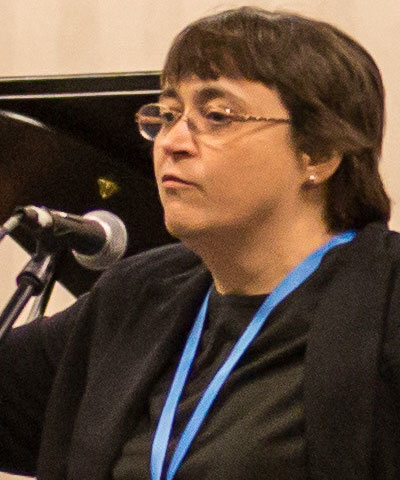
Nima Hamidi
Equilibrium
A state in which, opposing forces are balanced. In other words, the condition of a system exists in such a way that all-competing influences are stabilized, in a wide variety of contexts. Equilibrium is an attempt to reconstruct a similar situation. The concept of creating a stable unit, using unstable elements, is a feature of this work. Recently I’ve been experimenting with several unstable musical elements including timbre, rhythm, and dynamics, and more specifically, the concept of timbral instability. The notion is influenced by a unique performance practice in traditional music of the Middle East, which reflects an expressive bowing system. Several features including the random positions of bowing, dynamics, and a flexible left-hand finger pressure combined with drastic textural changes, range transformations, and a variety of sounds fields all provide unstable states of equilibrium. In order to balance these features, the composition is constructed carefully using temporal structure extracted from Piano Concerto by Beat Furrer. Equilibrium is an auditory experience that tries to compare a stabilized moment alongside an extreme number of unstable musical ideas.
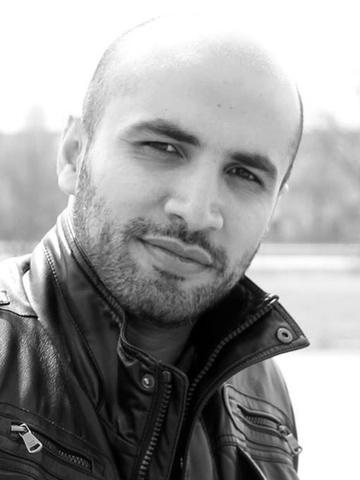
Nima’s music has been performed internationally by such ensembles as JACK Quartet, the Center for New Music (University of Iowa), Sorāyesh Ensemble, and resident performers of New Music on the Point. His music was performed and awarded at the International Fadjr Music Festival, Roudaki Hall, SCI regional conference (Friends University), Iowa composers’ forum, and number of symposia and workshops.
In addition to writing concert music, Nima collaborates with playwrights, dancers, and filmmakers. For the past four years he has been working as a concert organizer promoting new music, serving as the president of University of Iowa SCI student chapter, a research assistant for both the Composers’ Workshop and the Center for New Music (University of Iowa), and the founder of two experimental/improvisatory ensembles,Comprovisors and TetraXord.
Nima received his PhD in music composition at the University of Iowa. Prior to Iowa he earned his MA in composition and BSc in Civil Engineering in his home country. He has studied composition with Josh Levine, David Gompper, Lawrence Fritts, Shaheen Farhat, Kambiz Roshanravan and Kiawasch Sahebnasagh. He also has participated in master classes with David Lang, Wolfgang von Schweinitz, Stephen David Beck, Hans Thomalla, Anthony Cheung, Augusta Read Thomas, Amy Williams, Robert Morris, Juraj Kojs, Marcos Balter, Laura Kaminsky, and Michael Fiday.
Michael Eckert
Brass Quintet
I composed Brass Quintet for my colleagues in the Iowa Brass Quintet. The first movement dates from 2013; the second and third were completed in March 2017. Despite similar tempo markings, the movements present contrasting characters and textures. The first movement begins with a scalar idea that ramifies into increasingly complex interplay among the instruments. Conceived as an elegy for my parents and my wife’s mother, the second movement employs a rhythmic motive from, and eventually quotes, the beginning of the Sanctus of the Missa pro Defunctis (Requiem Mass) by Pierre de La Rue (c. 1452-1518), and ends with an allusion to “Taps.” The third movement begins with a fanfare-like idea in the trumpets that recurs in various guises, and rounds off the energetic closing. The movement durations are approximately 4:30, 4:45 and 3:30.
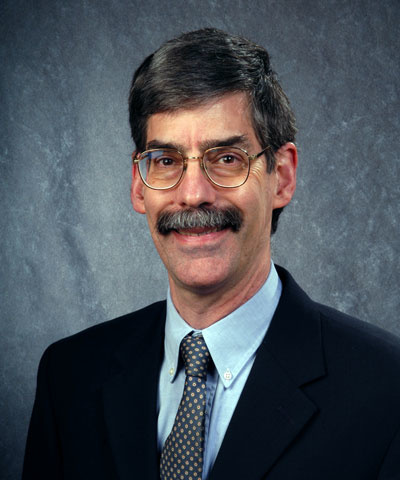
Djuro Zivkovic
On the Guarding of the Heart
On the Guarding of the Heart is directly inspired by my two previous pieces, I Shall Contemplate... and Le Cimetière Marin. All of them are religious music, which I freely call cantata, the name I borrow from and refer to Bach's masterpieces. On the Guarding of the Heart is an instrumental cantata, and it derives many of the compositional ideas from I Shall Contemplate..... Both pieces could be performed attacca, in such a way that the latter ends the pieces.
The main theme of On the Guarding of the Heart is the need to return into oneself, to descent with the intellect in to the depths of the heart, to guard it and to seek there the hidden treasure of the inner kingdom. The music is very stimulated by reading of the Philokalia; it is about a hard-achieved detachment, stillness and watchfulness, it is about solitude and exile.
